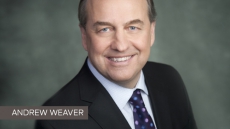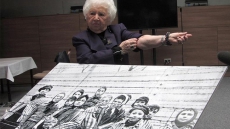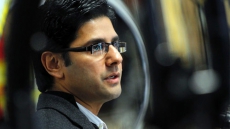VANCOUVER — When Dana Larsen opened a medical marijuana dispensary in Vancouver's east side in 2008, he was more than a little nervous about what could happen.
There were already a handful of other storefront operations in the city openly defying federal drug laws by selling marijuana, hash and other cannabis products to customers claiming a medical need. But it still wasn't clear how long police and the local government would allow that to continue.
Police never came. And in the intervening six and a half years, the number of dispensaries in Vancouver has exploded, with at least 60 operating in all corners of the city with relatively little interference from law enforcement.
"There has been no big outcry," says Larsen, a prominent marijuana advocate who is also vice-president of the Canadian Association of Medical Cannabis Dispensaries.
"If people were protesting our dispensaries and complaining and demanding something be done, maybe (the police would intervene). But dispensaries get very few complaints and raids against dispensaries get a lot of complaints."
In fact, rather than shutting dispensaries down, officials in Vancouver are doing just the opposite, investigating how the city can regulate an industry that has until now existed in a grey area of the law.
Vancouver Coun. Kerry Jang says the city has run out of patience with the federal government, which has ruled out legitimizing dispensaries.
Jang recently asked municipal staff to determine whether dispensaries can be zoned as pharmacies, which would give the city the ability to directly oversee such operations and control their growth.
"If we did that, we would be actually starting to regulate the number of dispensaries per street, their location, the same way we do with a regular pharmacy," says Jang, who teaches psychiatry at the University of British Columbia's medical school.
"The concerns are the same, especially for pharmacies that dispense methadone."
Vancouver's first medical marijuana dispensary opened more than a decade ago, and for years there were fewer than half a dozen in the city. Recently, however, that number has grown exponentially, particularly in the past year.
In comparison, the Canadian Association of Medical Cannabis Dispensaries says it knows of about 35 such facilities elsewhere in B.C., and just 20 in the rest of the country, mostly in Ontario and Quebec.
Those dispensaries all operate outside the federally regulated system, which the government overhauled last year to switch production from home grow-ops to large-scale commercial operations. Dispensaries were illegal under the old system and that didn't change last year.
Supporters of dispensaries argue the new federal system doesn't meet patients' needs, either because the legal marijuana is too expensive, supply is low, or commercial producers don't offer an adequate variety of strains. The commercial system also doesn't produce edible products or oils, but dispensaries do.
Whether the laws are enforced, however, depends on local police.
Police in Vancouver have raided dispensaries in the past, but it isn't common. Const. Brian Montague says the force doesn't consider dispensaries a priority unless they are selling to minors or police receive complaints about specific public safety concerns.
"We focus our resources on violent drug traffickers," says Montague, who suggests the law isn't as clear as it seems.
"If you look at the Criminal Code, it clearly says that selling marijuana is illegal, but there are lots of cases currently going through the courts that make that not so black and white. It's very grey."
There is no grey for the federal government.
Paul Calandra, parliamentary secretary to the prime minister, says the government has no plans to formally legalize dispensaries.
"They were illegal before, they remain illegal today and as long as we're in government they will continue to be illegal," Calandra says.
"That is the law of the land, and we would hope our municipal and provincial partners would enforce the law as it stands today."
Some police agencies are enforcing the law.
Halifax police raided the city's only dispensary last year. Local RCMP officials in Grand Forks, B.C., and Parksville, B.C., recently warned prospective dispensaries they would be shut down if they open. Mounties raided a dispensary in Kelowna last month, though two others in the city remain open.

RCMP spokeswoman Sgt. Laurie White couldn't say whether the force has a broad policy for marijuana dispensaries.
"We will take enforcement action if there are any indications of contraventions to the (Controlled Drugs and Substances Act)," she says.
"It depends on what the information is, what the source is, and that would then drive our investigation."
Facts about marijuana dispensaries across Canada
The precise number of medical marijuana dispensaries in Canada is difficult to pin down, but the Canadian Association of Medical Cannabis Dispensaries has been tracking their growth. Here is a tally of dispensaries the association knows about:
Vancouver: 60
B.C.: 35
Alberta: 2
Manitoba: 1
Ontario: 13
Quebec: 4
Nova Scotia: 0, though a dispensary was operating in Halifax until police raided it last September.
SOURCE: Canadian Association of Medical Cannabis Dispensaries





